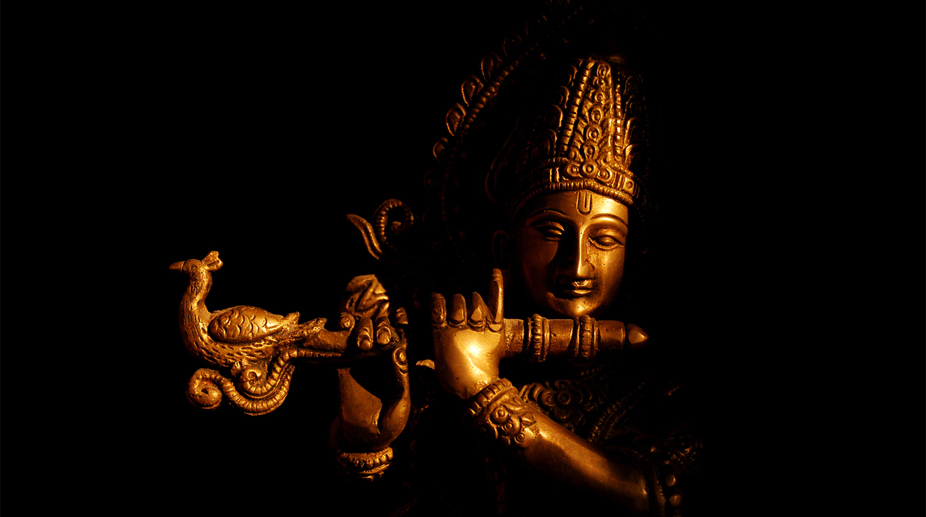You are only entitled to the action, never to its fruits – Bhagvad Gita
The invincible hero in terms of physical prowess and intellect, Lord Krishna’s birthday — Janmashtami — is celebrated across India on the eighth day of the dark half (Krishna paksha) of Hindu lunar calendar’s Shravan month. Janmashtami is also known as Krishnashtami, Gokulashtami and Srikrishna Jayanti.
Lord Krishna, who is considered the ‘poorna avatar’ (complete incarnation), the eighth reincarnation of Lord Vishnu, gave to the world the Bhagvad Gita — the doctrine that put ‘karma’ on top of everything else.
A perfect personification of divinity, Karmayogi Lord Krishna performed the roles of a charioteer, a warrior, a disciple, a guru, a cowherd, a messenger and a beloved, yet remaining detached of all of them.
He has left an indelible mark upon the collective consciousness of the mankind through his message of devotion, dharma and Karma.
Every year on Janmashtami, all roads lead to Mathura and Vrindavan in Uttar Pradesh where Lord Krishna spent his formative years. Thousands of devotees from across the world turn up every year at the twin towns to celebrate Janmashtami. There are reportedly over 400 temples dedicated to Lord Krishna in Mathura.
Janmashtami is called Gokulashtami in some parts of South India. In Maharashtra, the major attraction of the festival is ‘dahi-handi’ (breaking of a hanging pot full of curd by a human pyramid). Gujarat, a land which is believed to be Krishna’s kingdom after the Mahabharta, also celebrates the festival with fervour.
At Puri in Odisha and in some parts of West Bengal, devotees observe the day by fasting till midnight (till the birth time of Krishna).
The day is also celebrated overseas, including Singapore, Canada, Pakistan, Malaysia, France, Nepal, Britain and the US. Janmashtami is a national holiday in Bangladesh. A colourful procession is taken out from Dhakeshwari National Temple in Dhaka.






